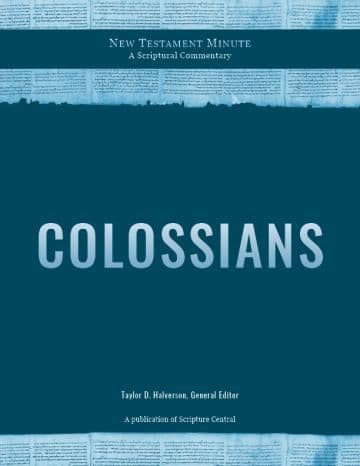Book
3 Chapters

As we discover when reading Colossians 1:9, Paul wrote about a special knowledge that ties to celestial realities. In that case, the knowing was connected to God’s will. In this verse, Paul prays for Church members to increase “in the knowledge [ἐπίγνωσις, epignōsis] of God.” This kind of knowledge is not an understanding about God. It entails knowing God Himself. The profound nature of this kind of knowledge is captured in modern scripture. From the Lord we hear these words: “If ye receive me in the world, then shall ye know me, and shall receive your exaltation; that where I am ye shall be also.”[fn]Doctrine and Covenants 132:23; also 88:49; 131:5.[/fn] In this light, receiving God fully in this life will mean knowing Him personally, leading to exaltation in His presence in the next life. Framed another way, in a coming day “ye shall see me [God], and know that I am.” What becomes evident in this passage is that a person must be purified in order to “abide” the experience.[fn]Doctrine and Covenants 38:8; see Ephesians 1:17; Doctrine and Covenants 45:46; 63:6; 67:10; 93:1.[/fn]
To take the matter a step further, “the knowledge of [God’s] will” and “the knowledge of God” lead to “the new man [or woman],” who is constantly “renewed in [the] knowledge” of the Creator in whose image Church members seek to fashion themselves.[fn]Colossians 1:9–10; 3:10; N. T. Wright, The Epistles of Paul to the Colossians and to Philemon: An Introduction and Commentary (Grand Rapids, NI: Eerdmans, 1986), 57.[/fn] In a word, Paul has turned from a prayer of thanksgiving (1:3–8) to an intercessory prayer in which he prays for others, in this case begging God that the Colossian Saints be filled with the unspeakable knowledge of Him—a gift that was unavailable to them when they were “dead in [their] sins” (2:13).
The knowledge of God’s celestial will means that such a comprehension has come to a person as a divine gift. This kind of understanding does not come by studying the natural world or examining human relationships. By no means. Significantly, this heavenly gift does not arrive without any obligations on the recipient’s part. For God’s will or plan for an individual has to do with both future choices and how that person will conduct his or her life. By accepting God’s will, each person becomes a part of God’s plan for His children. That is the point of walking “worthy of the Lord,” of “being fruitful in every good work” (1:10). One’s trust, one’s faith frames the beginning of coming to know God and His will. But this initial step is not enough to sustain a relationship with heaven. Paul’s “letters constantly link knowledge of God and faith, on the one hand, and holy living, on the other.” For the Apostle, “faith and the faithful life are two sides of a single coin,” as his instructions in Colossians 2 will show.[fn]Jerry L. Sumney, Colossians: A Commentary (Louisville, KY: Westminster John Knox, 2008), 46.[/fn]
Adapted from S. Kent Brown, The Epistle to the Colossians (Provo, UT: BYU Studies, forthcoming).
Items in the BMC Archive are made publicly available for non-commercial, private use. Inclusion within the BMC Archive does not imply endorsement. Items do not represent the official views of The Church of Jesus Christ of Latter-day Saints or of Book of Mormon Central.